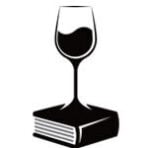You have probably been among friends or acquaintances, and the conversation has been about whether you like to cook or bake. And you probably have responses that are decisively one way or the other. The typical response is that baking is considered a science, and cooking is an art. There is a psychology underneath the preference for cooking vs. baking.
Baking
Many analytical people, or need structure, follow a technical career path, and lean towards baking. Baking requires following directions—if you get the ingredients wrong or even a slight variation, it tastes different. Creative minds, such as entrepreneurs, tend to be the ones who like cooking. Improvising as you go along, adding a little of this or a little of that, is intriguing and keeps the interest in the outcome. Cooking recipes can usually be adjusted or substituted and still be palatable. Baking is more of a science, which mysteriously can go wrong with a straightforward slip in the directions we sometimes don’t understand
Most sommeliers with a WSET background prefer to bake.
Cooking
Cooks are the more intuitive bunch and like to tweak recipes according to preferences or what they have on hand. Once you know how to cook, you tend to understand how certain flavors and textures go together. You can take an idea and make it a meal. Bakers go more by the textbook and are more patient. Their precision and need to measure yield beautiful results that many admire.
Then there is the argument that cooking is not more intuitive than baking. Cooking allows for more mistakes, and while it still produces a meal, it is not always considered edible. One common thread to both is that to do either well, there are certain basics to learn. When one is learning, it is certainly creative on both sides. Like any craft, you need to get your feet wet and understand it to explore further.
Sommeliers trained by the Court of Master Sommeliers seem to prefer cooking, on the whole.
Baking & Cooking?
So, it is not who can or can’t cook, vcan’tte, orvscan’temore inclined, but who is willing. You choose whether to live the rest of your life by the book or the seat of your pants! It is nice to try the opposite of your natural tendency and experience a sense of freedom or calm, depending on the day or mood.
The engineer may feel a need to let go of the rules and enjoy a couple of hours of exploration in the kitchen. Cooking feels good, no matter the outcome. The typical baker may find that trying different cooking recipes over time allows him or her to become more confident and explore.
Learning By Doing
Whatever style you prefer, each has its uniqueness and area of proficiency—you learn more the more you pursue it. Thus, both express creativity and are part of who you are. Enjoy the journey as you would a sport, and see your skill build down the road.
The desire to cook or bake can change as people’s preferences change. So, give the other side a whirl—you never know when you may surprise yourself or others.
SommelSommelier’seVSommelier’s
For pairings, it often doesn’t matter whether the dish is cooked or baked. In some sommelier certification programs, the chemistry of wine is taught extensively. Those classes show that the components of wine that remain in the final dish are tartness and bitterness. Those elements almost always favor a lighter-style red wine or a richer white wine.

